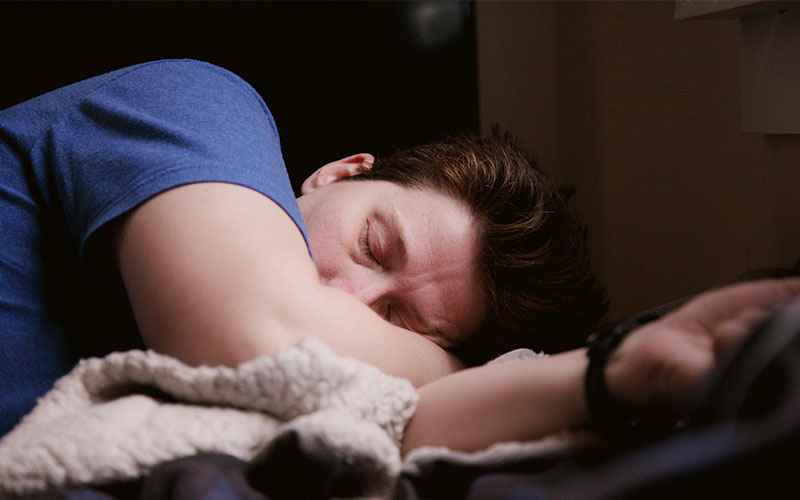When it comes to quality sleep, disorders like sleep apnea and the annoyance of snoring can significantly disrupt your nights. For many, a restful night’s sleep remains elusive due to these issues. In this article, we will delve into the world of sleep apnea and snoring, exploring their causes, symptoms, and effective treatment options.
Understanding Sleep Apnea
Sleep apnea is a common but serious sleep disorder characterized by pauses in breathing during sleep. These interruptions in breathing can last for several seconds and may occur multiple times throughout the night. It is often accompanied by loud snoring, gasping, or choking sounds as the individual struggles to breathe.
Types of Sleep Apnea
There are two primary types of sleep apnea:
1. Obstructive Sleep Apnea (OSA)
Obstructive sleep apnea is the most common type, occurring when the muscles at the back of your throat relax excessively, leading to a temporary blockage of the airway.
2. Central Sleep Apnea
Central sleep apnea is less common and occurs when the brain fails to transmit proper signals to the muscles responsible for controlling breathing.
Causes of Sleep Apnea
Sleep apnea can be caused by various factors, including:
- Excess weight and obesity
- Neck circumference
- Family history
- Smoking and alcohol use
- Age
- Gender (more common in males)
- Nasal congestion
The Importance of Treating Sleep Apnea
Leaving sleep apnea untreated can have serious health consequences. It can lead to daytime fatigue, high blood pressure, heart problems, and even an increased risk of accidents due to impaired cognitive function.
Signs and Symptoms of Sleep Apnea
Recognizing the signs and symptoms of sleep apnea is crucial for early diagnosis. Common indications include:
- Loud and chronic snoring
- Pauses in breathing during sleep
- Gasping or choking during sleep
- Daytime sleepiness and fatigue
- Difficulty concentrating
- Morning headaches
Diagnosis of Sleep Apnea
Diagnosing sleep apnea typically involves a sleep study, which can be conducted in a sleep clinic or at home. Monitoring breathing patterns, heart rate, and oxygen levels during sleep helps in the diagnosis.
Snoring: A Common Symptom
While not everyone who snores has sleep apnea, snoring is a prevalent symptom of this disorder. Snoring occurs when the flow of air through the mouth and nose is partially blocked, leading to noisy vibrations.
The Connection Between Sleep Apnea and Snoring
In many cases, sleep apnea and snoring are interconnected. As the airway becomes partially blocked, snoring often accompanies the condition. Effective treatment of sleep apnea can also alleviate snoring, providing a dual benefit.
Treatment Options for Sleep Apnea
Several treatment options are available for managing sleep apnea, including:
1. Lifestyle Changes
- Weight management
- Positional therapy (changing sleep positions)
- Avoiding alcohol and sedatives
2. Continuous Positive Airway Pressure (CPAP) Therapy
CPAP therapy involves using a machine that delivers a constant stream of air pressure to keep the airway open during sleep.
3. Dental Devices
Dental devices, such as oral appliances, can help reposition the jaw and tongue to keep the airway open.
4. Surgical Interventions
In severe cases, surgical procedures to remove excess tissue or reposition the jaw may be recommended.
Conclusion: A Restful Night’s Sleep
Sleep apnea and snoring can significantly impact your sleep quality and overall health. Recognizing the symptoms, seeking a proper diagnosis, and exploring the available treatment options can lead to a restful night’s sleep and a healthier, more energized life.
Frequently Asked Questions (FAQs)
1. Can snoring be a sign of sleep apnea? Yes, in many cases, snoring is a common symptom of obstructive sleep apnea.
2. How is sleep apnea diagnosed? Sleep apnea is typically diagnosed through a sleep study, which monitors your breathing patterns and other vital signs during sleep.
3. What are the health risks of untreated sleep apnea? Untreated sleep apnea can lead to daytime fatigue, high blood pressure, heart problems, and an increased risk of accidents due to impaired cognitive function.
4. Are there lifestyle changes that can help manage sleep apnea? Yes, lifestyle changes such as weight management, positional therapy, and avoiding alcohol and sedatives can be effective in managing sleep apnea.
5. What is CPAP therapy, and how does it work? CPAP therapy involves using a machine that delivers a constant stream of air pressure to keep the airway open during sleep, ensuring uninterrupted breathing.
At Lotus Dental Wellness in West Edmonton, we are dedicated to providing comprehensive dental care with a focus on your overall well-being. Our team of skilled professionals is committed to delivering top-notch dental services to ensure your oral health and, in turn, your overall quality of life. Whether you require routine check-ups, advanced treatments, or specialized dental care, we’re here to meet your needs. Your smile is our priority, and we look forward to welcoming you to our practice to experience the highest standard of dental care and wellness.
